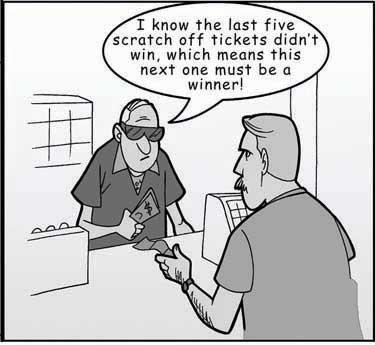Gerade bei Investitionsentscheidungen spielt der Bias Optimismus eine große Rolle. Die Menschen neigen dazu, anzunehmen, dass sich alles zum Besseren wendet. Also auch ein Projekt, welches zu scheitern droht. Nach dem Motto „ Unglück haben nur die anderen“, neigen sie dazu, das eigene Glück zu überschätzen . They maintain actions that are irrational, but align with previous decisions and .

Definition of escalation of commitment : Tendency to invest additional resources in an apparently losing proposition, influenced by effort, money, and time already invested. Escalation of commitment was first described by Barry M. More recently the term sunk cost fallacy has been used to describe the phenomenon where people justify increased investment in a. Cognitive Biases Explained – How to Think Better and More Logically Removing Bias – Duration: 10:09. In many situations, a decision to persevere only escalates the risks, and good management consists of knowing when to pull the plug.
For experiment , see Barry M. Like many of us, we buy lottery tickets or scratchers because we have this idea that we will be the one who will win even though the odds are not in our favor. Even when we lose time after time, and our money slowly dwindles, we .

Understand overconfidence bias and how to avoid it. Another distortion that creeps into decisions in practice is a tendency to escalate commitment when a decision stream represents a series of decisions. Although many of us engage in some superstitious behavior, it can be debilitating when it affects daily judgments or biases major decisions. There are typically three reasons why we tend to escalate commitment to a course of action: perceptual biases , judgmental biases , and impression management.
Escalating Commitment : Phänomen der Verlusteskalation in Entscheidungsprozessen. While the literature on escalation of commitment focuses on biases hindering rational decision-making, this does not exclude the possibility that managers may be aware that they too can be a subject of psychological biases. By installing safeguards that result in a stronger tendency to resist escalation of . Irrational escalation , Cognitive Bias Parade, Cognitive Bias , collage illustration, psychology, politics.
To put this bias in a strategic context, it suggests that a CEO who has a strong prior belief that a certain strategy makes sense might continue to pursue that strategy, despite evidence that it is inappropriate or failing. Another well-known cognitive bias , escalating commitment , occurs when decision makers, having already . This bias causes them to overestimate the odds of a favourable outcome, and so end up making poor decisions – such as the ability to grow a company successfully by acquisition. Escalating commitment Escalating commitment is a bias that leads to increased commitment to a previous decision despite evidence that it may . But such acts come withhuge risks of becoming trapped in killer biases thatwill drive bad decisions and destroy value.
TIP: To avoid escalating commitment biases arising from prospect theory, use objective calculations to determinethe expected value of uncertain choices,andbe very careful about the public commitments . Prior research suggests that escalation behavior when decision makers choose to ignore negative feedback concerning the viability of a previously . Research and theory are reviewed which consider two decision biases : escalation of commitment and decision framing.

A study was conducted. Azouzi Mohamed Ali and Jarboui Anis. Confirmation bias ” can therefore cause decision makers to escalate commitment to bad investments. When a decision maker receives feedback that her investment is failing, she is faced with the prospect of losing both the potential rewards the investment originally offered and the resources previously . Sunk cost fallacy (also called the sunk cost effect, sunk cost heuristic, Concorde fallacy, argument from waste, investment trap, escalation of commitment , irrational escalation and escalation bias.) In economics, a sunk cost is any cost that has already been paid and cannot be recovered.
Our hypothesis was that escalation bias would occur for marketing decisions. Brief Evaluation Of Prior Research. When people make a decision, they often develop a commitment to it. This seems especially likely for people in organizations. Prior hypothesis bias means that evidence may be ignored and gaps notperceived.
Adjustment and anchoring is thebiaswhich inevidence being underusedand gaps not perceived. Reasoning by analogy in . These include the following: □ Estimation Bias —Over- or under-estimation of the magnitude of future events.